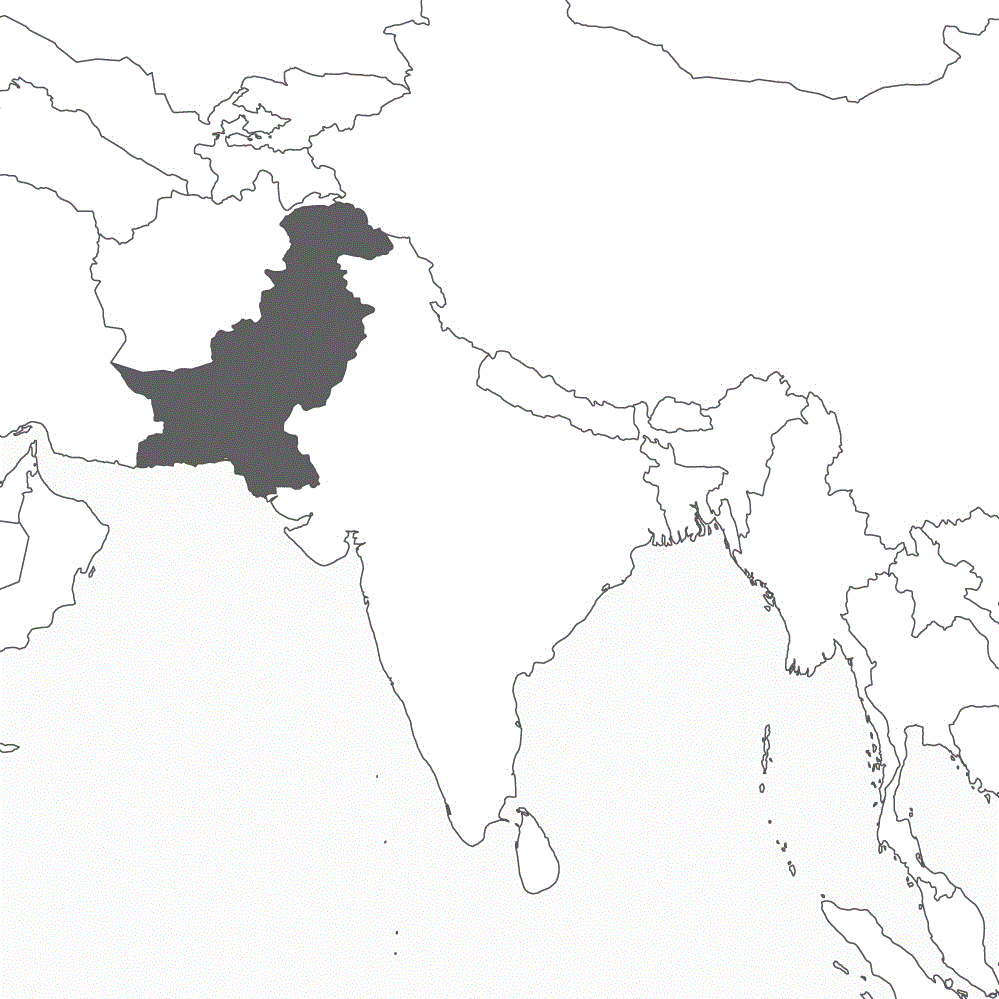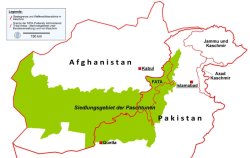Without Perspectives
BERLIN/ISLAMABAD (Own report) - With his visit to the Middle East, the German Foreign Minister Frank-Walter Steinmeier is hoping to avert the bankruptcy of the state of Pakistan. Pakistan, where he arrives on Monday, is one of Germany's most important military allies in Asia. After months of serious economic difficulties, the country is facing bankruptcy in this global financial crisis. An economic collapse would push Pakistan to the brink of political disintegration with dire consequences for the West, which is dependant on its contribution to the occupation of Afghanistan. Subsequent to his visit to Islamabad, the German foreign minister will pressure two Persian Gulf oil producing nations to support standby credits for Pakistan. But his visit to Islamabad will begin with talks on military cooperation in the region bordering Afghanistan, where the US has been carrying out regular air raids - leaving numerous civilian casualties. A group of German parliamentarians is presently holding talks with officials in Islamabad on the continuation of so-called German development aid, adding a civilian component to Western intervention in Pakistan.
State Bankruptcy
For quite some time, Pakistan's economy has been in a serious crisis. Already in September one could hear that inflation was getting out of control. As the expert on Pakistan Ahmed Rashid reported at a conference in Berlin six weeks ago, "the economy is collapsing at all levels".[1] The deadly bomb attack on a hotel in Islamabad soon afterwards, dealt another blow to the Pakistani economy. Foreign investors have since been withdrawing their investments to an even greater extent. The global financial crisis is threatening Islamabad with total collapse. Only two more weeks of urgently needed logistical imports can be paid for. According to an advisor to the Prime Minister, Pakistan needs at least US $3 - 5 billion over the next four weeks to avert a financial collapse. Negotiations with the International Monetary Fund (IMF) have already begun. And the German Foreign Minister's talks beginning today in Islamabad will focus on this problem.
Counterinsurgency
Pakistan's state bankruptcy would be fatal not only for the country itself, but also for the West.  The occupation of Afghanistan is increasingly dependant on Pakistan's support. There is growing insurgency in large parts of the ethnic Pashtun regions outside Afghanistan. The insurgency at the Hindu Kush would escalate even more, if the Pakistani army were not extensively intervening inside its country, therefore helping to cover the flank of the West. This is being met with growing resistance inside Pakistan, particularly since the US Air Force - using mostly drones [2] - has extended its air raids onto Pakistani territory over the past few weeks. Like in Afghanistan, this extension means taking numerous civilian casualties for granted.[3] The Pakistani anti-western opposition is growing. In the meantime, insurgents have been extending their activities from their bases located in the "Federally Administered Tribal Areas" to the country's large cities. An economic collapse would push Pakistan to the brink of political disintegration. This would endanger important NATO supply routes through Pakistani territory, therefore also threatening Western positions inside Afghanistan. (Our map shows ethnic Pashtun regions in Afghanistan and Pakistan - central areas for the insurgency against Western troops. Click here to enlarge.)
The occupation of Afghanistan is increasingly dependant on Pakistan's support. There is growing insurgency in large parts of the ethnic Pashtun regions outside Afghanistan. The insurgency at the Hindu Kush would escalate even more, if the Pakistani army were not extensively intervening inside its country, therefore helping to cover the flank of the West. This is being met with growing resistance inside Pakistan, particularly since the US Air Force - using mostly drones [2] - has extended its air raids onto Pakistani territory over the past few weeks. Like in Afghanistan, this extension means taking numerous civilian casualties for granted.[3] The Pakistani anti-western opposition is growing. In the meantime, insurgents have been extending their activities from their bases located in the "Federally Administered Tribal Areas" to the country's large cities. An economic collapse would push Pakistan to the brink of political disintegration. This would endanger important NATO supply routes through Pakistani territory, therefore also threatening Western positions inside Afghanistan. (Our map shows ethnic Pashtun regions in Afghanistan and Pakistan - central areas for the insurgency against Western troops. Click here to enlarge.)
Supplementary Program
In the long run, the West seeks to accompany the counterinsurgency in Pakistan with non-military means. This will be patterned along the lines of the "civil-military" approach being used in Afghanistan, that has the objective of acquiring additional intelligence sources for the military, while providing the occupation a "human face" ("winning hearts and minds").[4] Soon after the beginning of the war in Afghanistan, Berlin extended its so-called development policy in Pakistan, which also includes the "Federally Administered Tribal Areas" at the border with Afghanistan. These operational measures have been strictly separated from military activities. The Ministry of Defense declared a few weeks ago that Germany could participate in the "Comprehensive Approach" projects along the Pakistani border and earmark 30 million Euros for that purpose.[5] This refers to measures in which civilian organizations are working in coordination with the military. Besides Frank-Walter Steinmeier, a delegation of development policy experts of the German parliament are currently visiting Pakistan, to prepare for the allocation of new German government finances. This is why the head of the delegation will also travel to Peshawar (in the vicinity of the Afghan border), where she will meet with dignitaries of the "Tribal Areas," which are de facto in a state of war.
Sponsors
For the short term, the financial crisis and the threat of economic breakdown are making emergency measures imperative, to ward off the collapse of this military ally. The IMF credits, being currently negotiated by Islamabad, are not seen as an optimal solution. The drastic conditions attached by the IMF to its credits, have driven numerous countries into even deeper poverty and provoked poverty riots. In Pakistan's case, the credits could speed up the destabilization of the country, which, in view of the war in Afghanistan, the West seeks to avoid. Persian Gulf petro-nations granting condition-free credits, thereby avoiding destabilization, would be the preferred alternative. The Foreign Ministry declared that Berlin sees Saudi Arabia and the United Arab Emirates as possible sponsors. Foreign Minister Steinmeier will visit both countries on his way back from Pakistan and try to convince them to furnish the credit. But, Berlin says, "Western control over the aid" should be insured.[6]
Friends of the Taliban
It is advantageous that Steinmeier was able to bring Saudi Arabia and the United Arab Emirates into the loose alliance - the "Friends of Pakistan" group, which was founded during informal talks at the UN General Assembly at the end of September. Besides Saudi Arabia and the United Arab Emirates, this group includes powerful Western nations (USA, Germany, Great Britain, France, Italy, Canada, Australia), along with Turkey and China. The two Arab member nations in the group, that the German Foreign Ministry calls the "Friends for a Democratic Pakistan," were the only other nations, besides Pakistan, that had internationally recognized the Taliban regime in Kabul. Saudi Arabia recently organized informal talks between the current administration in Kabul and the Taliban, concerning a peace settlement for Afghanistan - the condition: the withdrawal of the Western occupiers.[7]
Pincer
An alternative solution - in case Islamabad does not succeed in bringing the rebels in the Pashtun region under control - was recently introduced for consideration in the European Council on Foreign Relations. In one of this think tank's articles, published in Berlin a year ago, it was suggested that Indian troops could be called in for reinforcement in Afghanistan.[8] If Delhi took control over Western Afghanistan, NATO troops could concentrate their forces on the eastern and southeastern parts of the country. Islamabad would hardly accept such a solution, as long as it is capable of intervening. India's military presence in Afghanistan would be tantamount to accepting a pincer around Pakistan by its archenemy, against which it had fought several wars since its founding in 1947. This became clear, when, after a bombing attack, targeting the Indian Embassy in Kabul, the Pakistani secret service was accused. The fact that India's prominent participation in the occupation of Afghanistan is being considered - a project that only in the case of total impotence of Islamabad can be fulfilled without negative side effects - exposes the dwindling perspectives confronting the Western occupiers. The occupiers are facing not only a loss of control over Afghanistan, but even over large areas of Pakistan.
Further information on German Pakistan policy can be found here: End of Isolation, To Accomplish a Mission and The Next War.
[1] Bericht: Außenpolitische Jahrestagung 2008 - Werte und Interessen in der Außenpolitik; www.boell.de
[2] see also Killerdrohnen
[3] see also Den Auftrag erfüllen, Rückzugsgefechte and Eine Frage der Zeit
[4] see also Unterstützungsfunktion, Fünfhundert Ziele, Von Helfern zu Kollaborateuren and Leerer Raum
[5] see also Der nächste Krieg
[6] Die Freunde eines demokratischen Pakistans; Frankfurter Allgemeine Zeitung 25.10.2008
[7] Höchste Todesrate seit Sturz der Taliban; Spiegel Online 30.09.2008
[8] Richard Gowan: The Trouble with India; www.ecfr.eu 29.09.2008. See also Raison d'Etat

